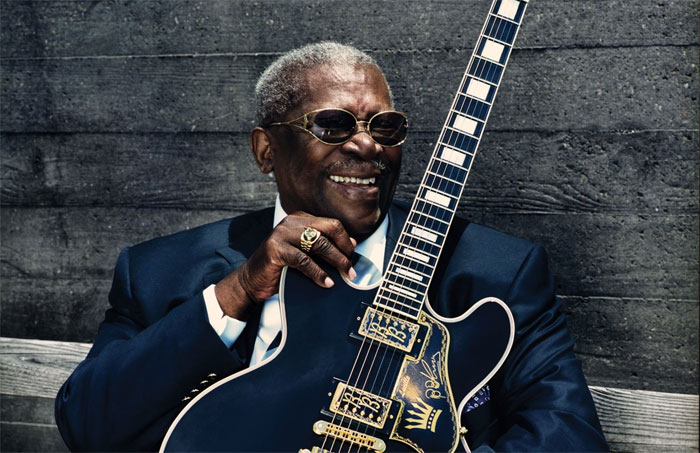In the world of blues music, few names hold as much reverence and admiration as B.B. King. Born as Riley B. King on September 16, 1925, in the heart of Mississippi, this legendary musician would go on to become a pioneer of the genre, inspiring countless artists and touching the hearts of millions worldwide. From his humble beginnings to his rise to stardom, let’s explore the extraordinary biography of B.B. King and uncover the story behind the man who earned the title “The King of Blues.”
Early Life and Musical Roots:
Riley B. King grew up in a small town called Berclair, Mississippi, where he was exposed to the rich tapestry of blues music that would shape his destiny. Influenced by artists like T-Bone Walker and Lonnie Johnson, he developed a passion for the guitar at a young age. King’s determination and talent soon caught the attention of his community, and by the age of 12, he was performing gospel music on local radio stations.
Rise to Stardom:
In the late 1940s, B.B. King made his way to Memphis, Tennessee, a city that served as a melting pot for blues, jazz, and R&B. It was during this time that he adopted the stage name “Blues Boy” King, which eventually transformed into B.B. King. His distinctive sound, characterized by heartfelt vocals and expressive guitar playing, garnered attention, leading to his first hit record, “Three O’Clock Blues,” in 1951.
B.B. King’s breakthrough came in the 1960s when he captured the essence of blues in his iconic guitar, Lucille. His soulful voice and impeccable guitar skills resonated with audiences around the world. Hits like “The Thrill Is Gone,” “Sweet Little Angel,” and “Every Day I Have the Blues” catapulted him to stardom, earning him the respect and admiration of both fans and fellow musicians.
Impact and Influence:
Beyond his extraordinary talent, B.B. King’s influence on the world of music cannot be overstated. He bridged the gap between blues and mainstream audiences, introducing the genre to a whole new generation of listeners. His heartfelt lyrics and emotionally charged performances touched the depths of human emotions, transcending boundaries of race and culture.
B.B. King’s impact extended far beyond his own success. He became a mentor to numerous artists, including Eric Clapton, Jimi Hendrix, and Stevie Ray Vaughan, who were inspired by his unique style and approach to the guitar. King’s collaboration with fellow musicians further enriched the blues genre, solidifying his status as a true music icon.
Legacy and Honors:
B.B. King’s career spanned over six decades, during which he released numerous albums and earned countless accolades. He received an astonishing 15 Grammy Awards, a Lifetime Achievement Grammy, and was inducted into both the Blues Foundation Hall of Fame and the Rock and Roll Hall of Fame. Additionally, he was awarded the Presidential Medal of Freedom in 2006 for his contributions to American music.
Until his passing on May 14, 2015, at the age of 89, B.B. King remained an active performer, touring extensively and spreading his love for the blues. His music continues to inspire and resonate with audiences of all generations, ensuring that his legacy lives on.
Conclusion:
B.B. King’s biography is one of incredible talent, unwavering dedication, and profound impact on the world of music. From his early struggles in Mississippi to his international fame, he stayed true to his roots and became an ambassador for the blues. B.B. King’s ability to convey raw emotion through his music touched the souls of millions, leaving an indelible mark on the history of music. As we celebrate the life and legacy of B.B. King, we honor the man who truly earned the title of “The King of Blues.”


No responses yet